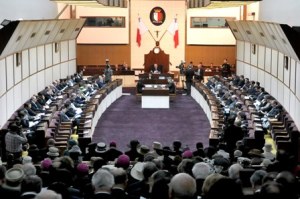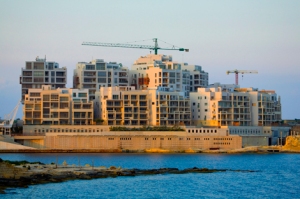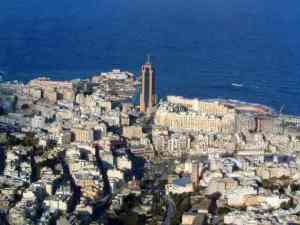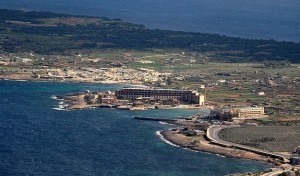Il-bieraħ ħadt sehem f’diskussjoni qasira fuq TVam flimkien mal-Psikjatra Joe Cassar (PN) u l-Avukatessa Deborah Schembri (PL).
Id-diskussjoni kienet dwar il-proposta ta’ Alternattiva Demokratika li l-Parlament għandu jaħdem fuq bażi full-time mhux bħal ma jaħdem il-lum, part-time.
Hemm ħafna xogħol li l-Parlament jeħtieġ li jagħmlu u ma jagħmlux għax ħin m’għandux.
Il-ħidma tal-Gvern ftit li xejn issir sorveljanza tagħha fid-dettall mistħoqq. Dak li għaddej fl-Unjoni Ewropeja ma jiġix mgħarbel kif meħtieġ. Dan minkejja li l-Parlament ta’ stat membru illum il-ġurnata bħala riżultat tat-trattat ta’ Liżbona għandu rwol importanti fil-proċess leġislattiv Ewropew.
Il-Parlament u l-Parlamentari għandhom bżonn lil min jassistihom fir-riċerka. Qasam injorat għal snin twal.
Kont sorpriż iżda bl-argument li dwaru qablu Joe Cassar u Deborah Schembri dwar li jista’ jkollok Parlament full-time imma l-Parlamentari mhux bil-fors ikunu full-timers. Jiġifieri dawn iridu sistema li tippermetti li uħud mill-Membri tal-Parlament jagħżlu li jkunu full-timers u lil oħrajn li jagħżlu li ma jkunux u dan minħabba li l-professjoni jew xogħol ieħor tagħhom jokkupalhom iktar ħin. Din hi l-attitudni li tirreżisti l-ħtieġa li kull Membru Parlamentari jagħti l-ħin kollu għall-Parlament għax sfortunatament għad hawn min irid li jibqa’ jkollu sieq waħda fuq naħa u s-sieq l-oħra fuq in-naħa oħra.
Għad għadna Membri Parlamentari li jippreferu jagħtu l-attenzjoni prinċipali tagħhom lill-professjoni. Jeħtieġ li issir għażla għax il-prattika tal-professjoni u l-ħidma parlamentari huma żewġ responsabbiltajiet li faċilment jikkonfliġġu u jistgħu joħolqu konflitt ta’ interess.
Nifhem l-attitudni, għax din ġejja minn persuni li uħud minnhom għadhom m’humiex konvinti l-anqas dwar il-ħtieġa li l-Ministri u s-Segretarji Parlamentari għandhom jieqfu mill-prattika tal-professjoni tagħhom.
Ir-rappreżentanti tal-PN u l-PL donnu li jridu jħallu f’idejn il-Membri Parlamentari individwali biex jiddeċiedu huma dwar jekk ikunux membri full-time jew part-time. Iridu li jkollna kemm Membri Parlamentari tal-ewwel diviżjoni (full-time) kif ukoll dawk tat-tieni diviżjoni (part-time). Fi ftit kliem iridu jibqgħu jipprattikaw il-professjoni u fl-istess ħin jippruvaw jaqdu r-responsabbiltajiet Parlamentari.
L-esperjenza sal-lum uriet li Parlament part-time hu Parlament dgħajjef. Parlament part-time hu Parlament li jabdika r-responsabbiltajiet tiegħu f’idejn il-Gvern tal-ġurnata.
Huwa billi jkollna Parlament li jagħmel xogħolu kollu li l-pajjiż jista’ jimxi l-quddiem. L-ogħla istituzzjoni tal-pajjiż ma tistax tibqa’ tiffunzjona fuq bażi part-time.
Dan hu l-pass li jmiss għall-Parlament. Parlament iktar b’saħħtu jfisser demokrazija iktar b’saħħitha.









